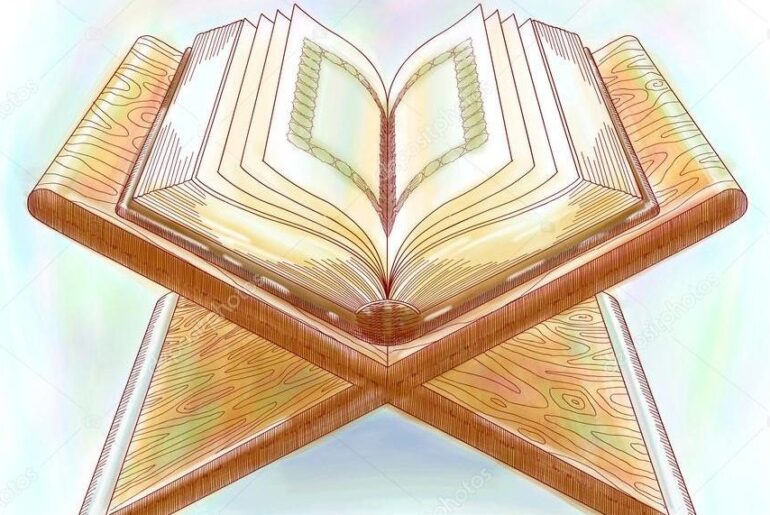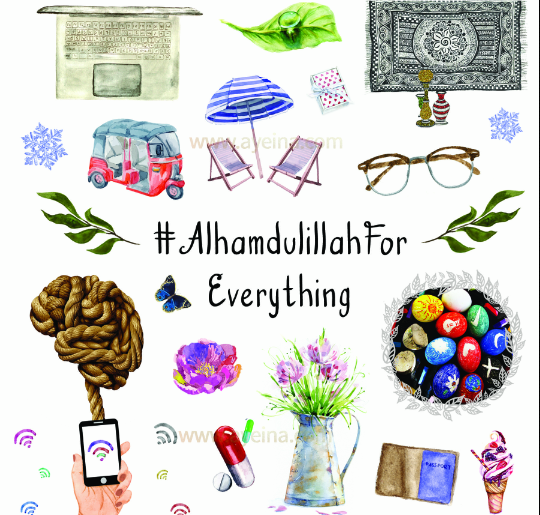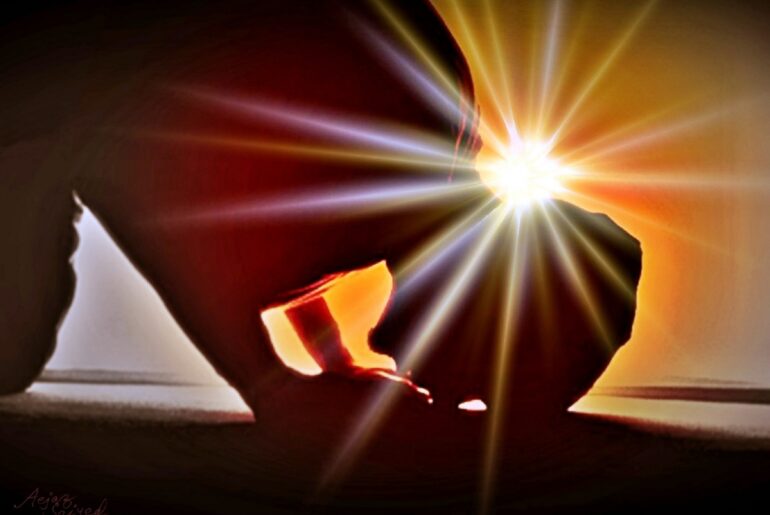Image Courtesy of: https://depositphotos.com
There are so many profound, thought-provoking ayahs within the Qur’an. Add that with a heart-warming recitation of Islam Al Sobhi or Mansur Al Salimi and your heart just melts away. It could bring you to tears when you actually ponder the verses and reflect on them. I will share with you some of my favourite ayahs and I hope they bring meaning to your life just like they do for me.
1. 
I love this ayah a lot and I refer to it all the time. Because it answers all the questions we have no answers to. All the uncertainties, all the doubts, the questions of ‘why?’ Why did I fail despite working so hard? Why do good people go through the worst? Why did I go through such an ugly divorce despite being a good wife? Why don’t I have children? Why does God allow bad things to happen? Why is this happening to me? Why me? WHY WHY WHY…This is the answer right here. ‘Do the people think they will be left to say they believe and not be tested?’ I leave this here as food for thought because we could write an entire book about this one ayah.
2. 
“Jugular vein, is any of several veins of the neck that drain blood from the brain, face, and neck, returning it to the heart via the superior vena cava. If you block the jugular veins, the pressure in the brain goes up. The jugular vein system is essential and is found fairly deep in the body.”
Now Allah (S.W) makes us aware that He is THAT close to us and MORE. He knows what is going on within us; when our hearts are filled with envy, when we have lowly desires, when we are breaking, when we are hurting, our true intentions; ALLAH KNOWS. Because He created us, how can He not know? This should make us both fear Him and trust Him. Fear Him because He is aware of all that goes on within us; the good, the bad and the ugly, even when we conceal it from the entire world. Trust Him because He knows when we are in pain, when we want His help, when we are striving to be better human beings. HE KNOWS of all that is within you. He is listening, He is watching, He is with you always. ALLAH KNOWS…
3. 
Think for a moment of your happiest day. The day you felt elated the most. Think of that day then now reflect on this day. Allah (S.W.) tells you that THIS LIFE is nothing but diversion and play. That happiness, that joy, that ecstatic feeling is NOTHING compared to what Allah (S.W.) has in store for us in Jannah. Picture how much happier you can actually be in the next life if you do make it.
Now think of your saddest moment in life. The day your soul crumbled. The worst time of your existence. Think of that then reflect on this ayah. Allah (S.W) is reminding you that this life is NOTHING. That this material life is useless and pointless. He is telling you that what you see in this life, all that you yearn for, all that you ache for, is temporary and cheap. That this dunya is a cheap game. Don’t you want more? Don’t you want what’s real? What’s eternal? Jannah. Aim for that instead.
4. 
“أَلَمْ يَأْنِ لِلَّذِينَ آمَنُوا أَن تَخْشَعَ قُلُوبُهُمْ لِذِكْرِ اللَّهِ وَمَا نَزَلَ مِنَ الْحَقِّ وَلاَ يَكُونُوا كَالَّذِينَ أُوتُوا الْكِتَابَ مِن قَبْلُ فَطَالَ عَلَيْهِمُ الْأَمَدُ فَقَسَتْ قُلُوبُهُمْ وَكَثِيرٌ مِّنْهُمْ فَاسِقُونَ”
Allah (S.W.) is asking you dear believer, has the time not come for YOU to submit to Allah? Has the time not come? What are we waiting for? The sun rising from the west? Malakul maut standing in front of us? Till when will we delay giving in to what truly brought us to this earth? Till when it is too late? Till our hearts become hard and the word of Allah does not affect us anymore? It is high time. It is high time.
5. 
I grew up hearing this ayah all the time from my mother and father (alhamdulilah for my parents). They literally made me SEE this with my own eyes. Whenever my parents were stuck at any matter, they would always, always refer this ayah to us. It always awed me, how they believed that much yet Allah never failed to respond to them. One door would close, another would open. Another would open and the previous would close. Whenever my mother needed anything and she had absolutely no way out, she would still say it confidently, ‘Allah will bring a way’ or mostly, ‘لَا تَقْنَطُوا مِنْ رَحْمَةِ اللَّهِ’ (Do not despair of the mercy of Allah) and I swear, Allah would always bring a way even if it was dead in the night. This wasn’t just with provision and money, but any kind of difficulty we faced. And through my parents, I learnt to trust that Allah will never forsake me so long as I have faith in Him.
There was a time I was at the matatu stage and I was feeling unwell. I just had two hundred shillings with me and there was no way I could go to the hospital with 200 bob. Also, I was supposed to be somewhere in town and that’s the same I needed for the fare. Nonetheless, I said I will tawakkal. I went to a nearby hospital in which the doctor has treated our family through out the years. So I walk in to the reception and she asks whether I had a card. The card was more than 4 months old and the hospital had a system where you had to renew the card every 3 months. So when I gave her the card, she was awed by how neat and new the card still looked and said, ‘Because you kept this very well, I won’t ask you to renew one now. You can go in and see the doctor.’ I go in and talk to the doctor for a while about my condition. At the end, I ask him how much it would cost. Remember, with me I just have two hundred shillings. Which doctor takes 200 shillings anymore?! The doctor looks at me and says, ‘You don’t have to pay anything. Take this prescription and buy the meds’. And that was it. I still got to go to both the hospital and my destination in town. Tell me, how is that even possible without Allah’s mercy? Coincidence? I bet not.
This doesn’t mean I am pious. Far from it. Nor does it mean I feel better than others, walyadhu billah. But I just wanted to show this example how Allah actually and truly gives you a way out when you have faith in Him.
There is a lady who lacked anything in her house some years back. It was Ramadhan like it is now and she met her neighbour on the way. As we know our culture here in Mombasa, we’d ask, ‘Leo wapika nini futari?’ (what will you cook today for iftaar?’ The lady laughed and said, ‘Iftaar? I don’t even have the tiniest bit of salt let alone prepare any meal.’ Her neighbour immediately offered some little cash, but this lady knew that her neighbour was struggling just as she is. So she respectfully declined, thanked her and said, ‘God will bring a way’. She headed back home and upon opening the door, the entire seating room was filled with food items. The lady was shocked and asked her then jobless husband, ‘where did all this come from?’ The lady was a teacher and several parents of her students had brought her the food. The lady was so moved, she had to sit down to get a hold of herself. Tears were rolling down her eyes, awed by how good our Lord is.
Sadly, so many of us, Allah favours us in this same way, yet we never even recognize it. We become so blinded with this material life and forget who actually has been above it all; helping us, paving ways for us, removing blocks on the path. We assume we have what we do because we worked for it or because we deserve it. However, if you look keenly, you will know for sure, it is ONLY by ALLAH. Ask anyone who’s had it rough in life and eventually arose, they’ll tell you, ‘Ni Mungu tu…’
***
Ramadhan Mubarak to you my dear reader. May Allah accept our good deeds, forgive us, guide us, relieve our worries and doubts, protect us from Nar and grant us His mercy to see Him on the day of Judgement. May Allah grant us health, contentment, peace of mind and willingness to keep on striving on this earth. Ameen.
May Allah accept this as sadaqa jariya for me and my parents who’ve been my greatest example and role models on how to rely on Him alone. May Allah forgive them all their short-comings and grant them the highest level of jannah. Ameen.
Please do include me in your duas and stay tuned for part 2 in shaa Allah!






